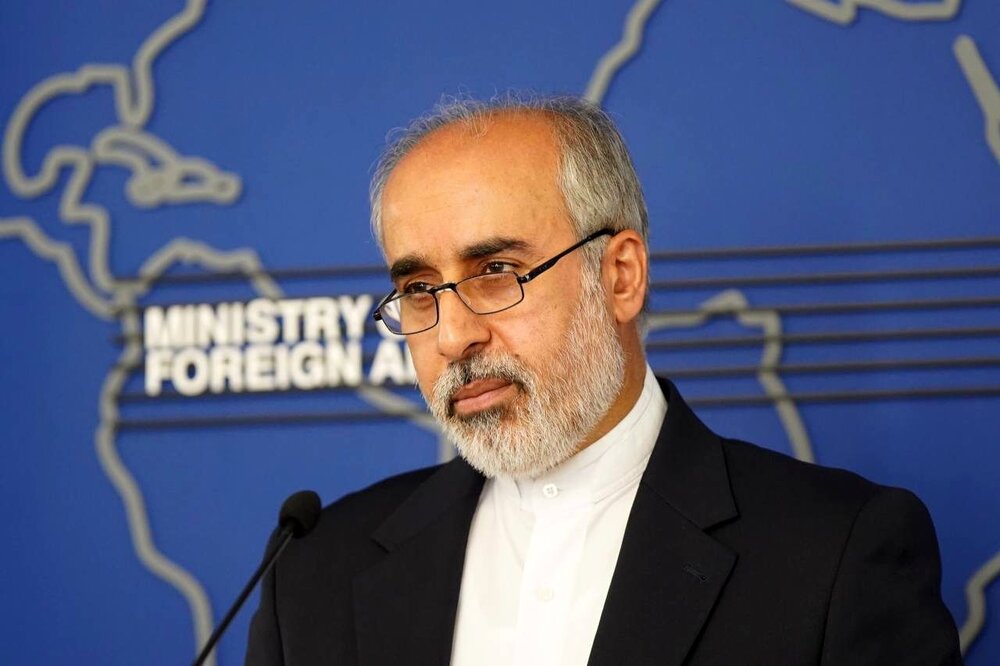IAEA delegation to visit Iran: spokesman

TEHRAN – Nasser Kanaani, the spokesman for the Iranian foreign ministry, said Monday that a delegation from the UN nuclear watchdog will soon travel to Iran to discuss cooperation between Tehran and the International Atomic Energy Agency.
Speaking at a weekly press conference, Kanaani said, “A delegation from Iran traveled to Vienna and held talks with officials of the International Atomic Energy Agency. Iran continues its constructive communication to resolve safeguards issues. It has been agreed that a delegation from the International Atomic Energy Agency will travel to Iran and continue the talks.”
He did not say when the IAEA delegation pay a visit to Iran.
Kanaani added, “Some of the issues related to the Agency are the sanctions removal negotiations, some countries are trying to distort Iran's cooperation with the Agency.”
He also reacted to the draft resolution that the U.S. and the E3 countries -France, Germany, and the UK- are reportedly pushing for at the IAEA Borad of Governors.
Earlier, Reuters reported that the United States, Britain, France and Germany want the U.N. nuclear watchdog's board to pass a resolution calling it "essential and urgent" for Iran to explain uranium traces found at three undeclared sites.
The draft resolution was sent to other countries on the 35-nation International Atomic Energy Agency Board of Governors on Friday ahead of a quarterly meeting that starts on Wednesday, Reuters added. "
(The Board of Governors) decides it is essential and urgent ... that Iran act to fulfil its legal obligations and ... take the following actions without delay," said the text, dated Friday and listing actions such as providing credible explanations for the traces, according to Reuters.
Other actions listed included "provide all information, documentation, and answers the Agency requires" and "provide access to locations and material the Agency requires, as well as for the taking of samples as deemed appropriate by the Agency". Kanaani said the European countries are acting hastily.
“Unfortunately, we are witnessing hasty and unproductive behavior from European countries. It is surprising and regrettable, and while the technical negotiations with the agency continue, and at the same time as the delegation of the agency to Tehran, we are witnessing such actions from Europe,” he said, according to IRNA.
He warned, “Issuing the resolution will cause problems for Iran's technical cooperation with the Agency, and we will direct the European parties to diplomacy.”
Earlier, Amir Saied Iravani, Iran’s ambassador to the UN, had said that Iran and the IAEA have close working relationships in a variety of areas.
In a statement to a UN General Assembly session, Iravani said, “Nuclear power is a key priority for all states in particular developing countries as a way to meet power needs while keeping the carbon footprints low. It is noteworthy that the transfer of nuclear knowledge and technology to interested developing nations, as provided for under the NPT and the IAEA Statute is critical.
According to the IAEA statute, the Organization is tasked with supporting Member States in nuclear energy research, development, and practical use for peaceful purposes.” He added, “The safeguards-related verification activities should be carried out in support of the IAEA's primary function of advancing the application of nuclear science and technology.
The necessary safeguards in this situation must be designed and put into action in a manner that respects the unalienable rights of NPT States Parties while not obstructing their economic or technological development. These unalienable rights must be protected, and the national sovereignty of the NPT States Parties must be respected, in any actions taken to enhance the safeguards' application.
